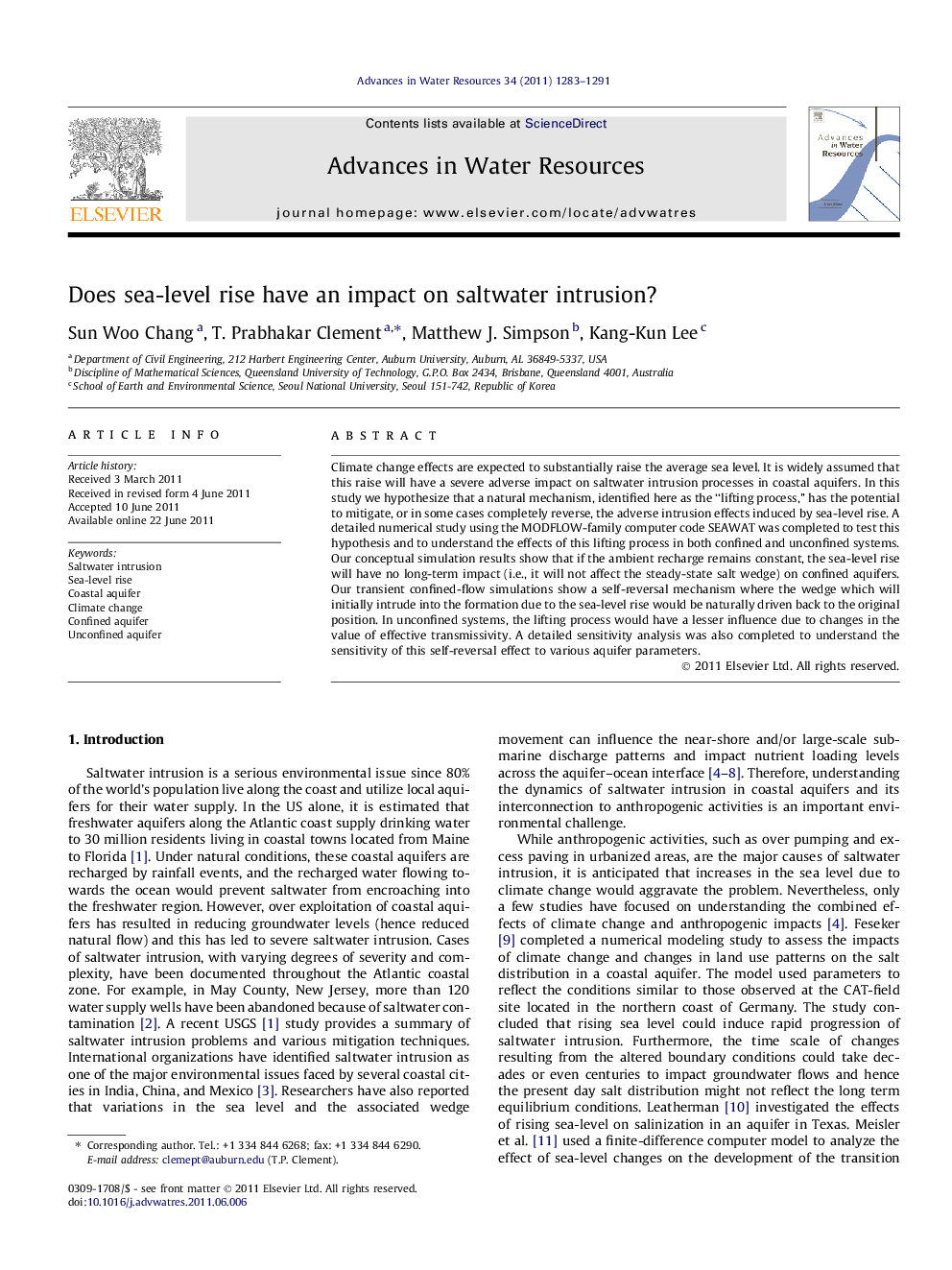| Article ID | Journal | Published Year | Pages | File Type |
|---|---|---|---|---|
| 4526045 | Advances in Water Resources | 2011 | 9 Pages |
Climate change effects are expected to substantially raise the average sea level. It is widely assumed that this raise will have a severe adverse impact on saltwater intrusion processes in coastal aquifers. In this study we hypothesize that a natural mechanism, identified here as the “lifting process,” has the potential to mitigate, or in some cases completely reverse, the adverse intrusion effects induced by sea-level rise. A detailed numerical study using the MODFLOW-family computer code SEAWAT was completed to test this hypothesis and to understand the effects of this lifting process in both confined and unconfined systems. Our conceptual simulation results show that if the ambient recharge remains constant, the sea-level rise will have no long-term impact (i.e., it will not affect the steady-state salt wedge) on confined aquifers. Our transient confined-flow simulations show a self-reversal mechanism where the wedge which will initially intrude into the formation due to the sea-level rise would be naturally driven back to the original position. In unconfined systems, the lifting process would have a lesser influence due to changes in the value of effective transmissivity. A detailed sensitivity analysis was also completed to understand the sensitivity of this self-reversal effect to various aquifer parameters.
► We model the transient impacts of sea-level rise on saltwater intrusion. ► We have identified a self-reversal process that can reverse intrusion. ► The reversal process can partially/fully mitigate the intrusion effects. ► If regional fluxes remain constant, sea level rise should have minimal impacts.
